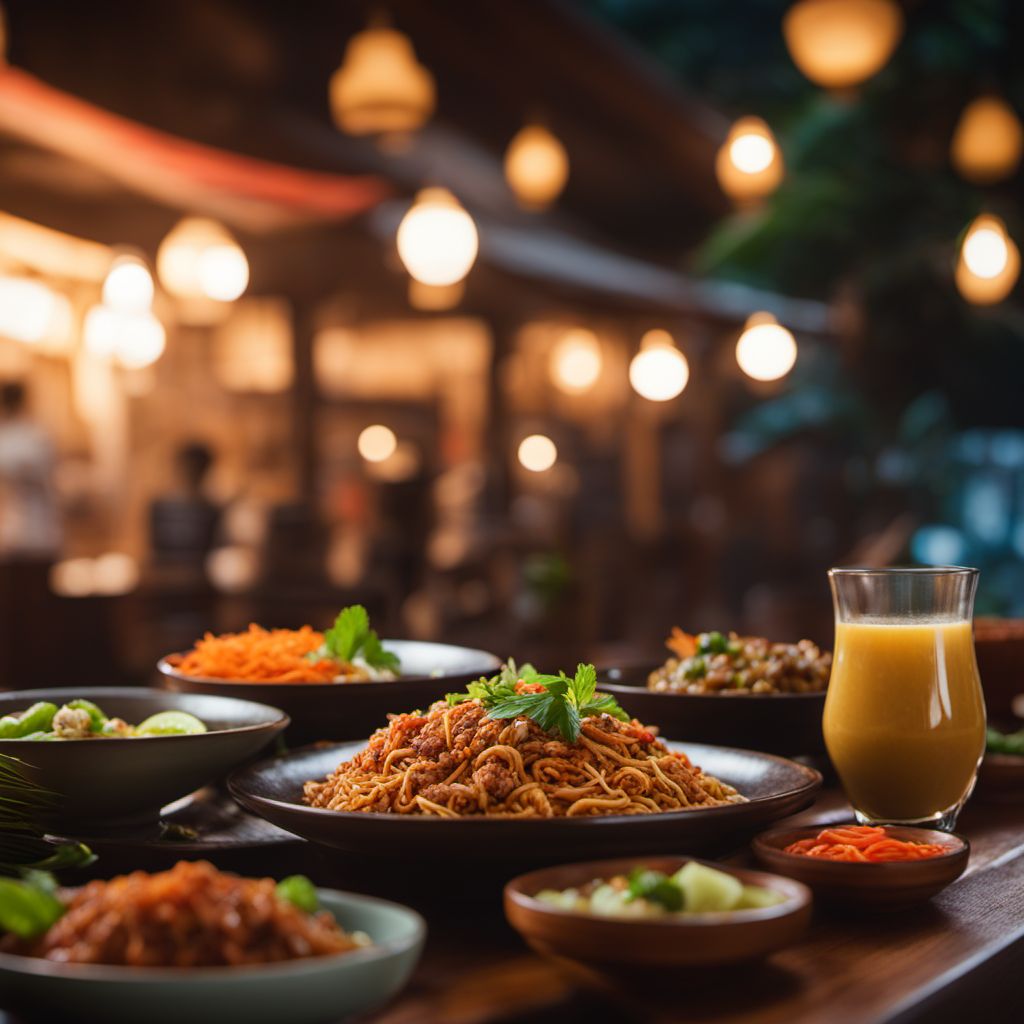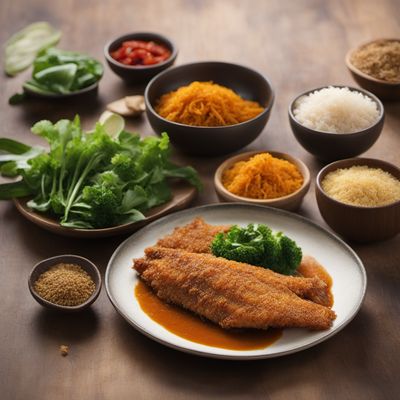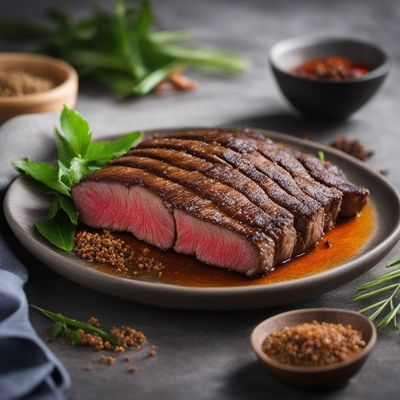
Cuisine
Sabahan cuisine
Sabahan cuisine is a fusion of various cultures including Malay, Chinese, and indigenous Bornean. It is characterized by the use of fresh seafood, herbs, and spices. The cuisine is also heavily influenced by neighboring countries such as the Philippines and Indonesia. Sabahan cuisine is known for its spicy and flavorful dishes.
Typical ingredients
Seafood, Rice, Coconut milk, Turmeric, Ginger, Lemongrass, Chili, Belacan (shrimp paste), Tamarind, Pandan leaves, Various herbs and spices
The most popular Sabahan dishes include hinava (raw fish salad), bosou (fermented fish), and sinalau bakas (smoked wild boar).
More cuisines from this region...
Malaysian Chinese cuisine, Malay cuisine, Eurasian cuisine of Singapore and Malaysia, Arab cuisine, Malaysian Indian cuisine, Peranakan cuisine, Sarawakian cuisine
History
Sabahan cuisine has a rich history dating back to the pre-colonial era. The cuisine has been influenced by various cultures including the Bruneian, Chinese, and British. The indigenous Kadazan-Dusun people also have a significant influence on the cuisine. Sabahan cuisine has evolved over time and continues to be a popular cuisine in Malaysia.
Cultural significance
Sabahan cuisine is an important part of the Sabahan culture and is often served during festivals and celebrations. The cuisine is also popular among tourists visiting the state.
Health benefits and considerations
Sabahan cuisine is generally healthy as it uses fresh ingredients and minimal oil. However, some dishes may be high in sodium and calories.
Sabahan cuisine recipes Browse all »

Sabahan Stewed Saltfish with Spicy Plantains, Coconut Dumplings, and Seasoned Breadfruit
Savory Sabahan Delight: Stewed Saltfish with Spicy Plantains and Coconut Dumplings

Sabahan Biedermeier-Torte
Tropical Delight Biedermeier-Torte

Sabahan-style Crispy Fried Fish
Borneo Delight: Crispy Fried Fish with a Sabahan Twist

Sabahan Spiced Beef Patty
Savory Sabahan Spiced Beef Patty: A Fusion of Flavors

Sabahan-style Grilled Beef Picanha
Borneo Barbecue Delight: Sabahan-style Grilled Beef Picanha

Sabahan-style Vanilla and Coconut Prawns
Tropical Delight: Sabahan-style Vanilla and Coconut Prawns

Sabahan Stuffed Chilies
Fiery Delight: Sabahan Stuffed Chilies with a Spicy Twist

Sabahan-style Grilled Eggplant Dip
Smoky Eggplant Delight: A Sabahan Twist on a Greek Classic

Sabahan-style Mimi Udon
Savory Sabahan Delight: Mimi Udon with a Local Twist

Sabahan-style Pizza Scima
Sabahan Delight: A Fusion of Italian and Local Flavors in Sabahan-style Pizza Scima

Sabahan Coconut Cheesecake Brownies
Coconut-infused Delight: Sabahan Cheesecake Brownies

Sabahan-style Tortilla Sandwich
Savory Sabahan Delight: Tortilla Sandwich with a Local Twist